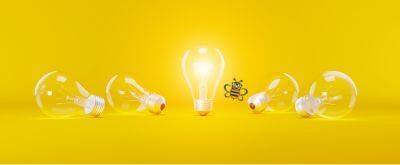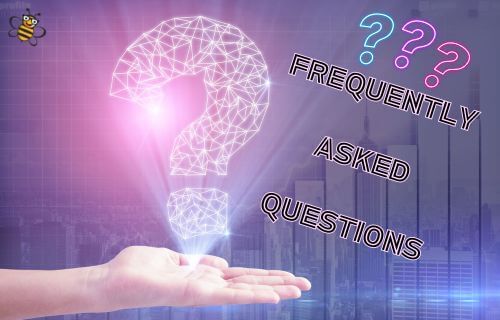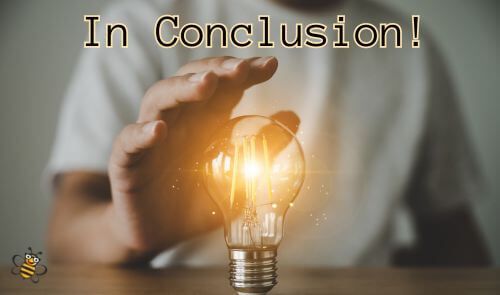In a world that's increasingly leaning towards sustainable energy solutions, the importance of hybrid solar inverters cannot be overstated. Whether you're a homeowner with solar panels or contemplating the switch to solar power, understanding hybrid solar inverters is key.
In this research article, we'll delve into the world of hybrid solar inverters, exploring what they are, how they differ from regular solar inverters, their pros and cons, and why they're crucial for homeowners seeking greener energy solutions.
And don't miss out on our product review blog titled "The Ultimate Game Changer: Best Hybrid Inverters You Can't Ignore!" It's also packed with valuable information you won't want to miss.

Research Section:
What is a hybrid solar inverter?
It's a sophisticated device that manages power flow from solar panels, the grid, and battery storage systems.
Unlike regular inverters, which only convert direct current (DC) power from your solar panels into alternating current (AC) for home use, hybrid inverters can also manage and store excess energy in batteries or feed it back into the grid.
Are they better than a regular inverter? What's the difference? Do both require solar energy?
A hybrid solar inverter is superior for solar power systems as it offers energy storage and grid connectivity. Regular solar inverters lack these features and cannot store or export energy.
Both types require a source of direct current (DC) energy, which can be solar panels or other renewable sources, such as wind energy or hydropower.
How many different types of hybrid inverters are there to consider, and which ones are the best?
There are various types of solar hybrid inverters, including single-phase, three-phase, and multi-mode models. (We can address that in another article!)
The "best" one depends on your specific needs, such as the size of your solar system and whether you require off-grid capability. You must also consider local electricity grid conditions, and, as always, your budget.
It's essential to consult with a solar expert for personalized recommendations.

What are the pros and cons of installing a hybrid converter?
Pros:
- Energy Independence:
One of the primary advantages of installing a hybrid solar inverter is achieving a degree of energy independence. With a hybrid inverter and an energy storage system, such as batteries, you can continue to power essential appliances and devices even during power outages.
This is particularly valuable in regions prone to frequent blackouts or in emergencies, ensuring that you have a reliable source of electricity.
- Cost Savings:
Hybrid solar inverters can help homeowners maximize the self-consumption of solar energy. They allow you to use the electricity generated by your solar panels directly in your home before sending excess energy to the grid.
This reduces your reliance on electricity from the grid and can significantly lower your monthly electricity bills. Over time, the savings on utility bills can offset the initial investment in the hybrid inverter system.
- Grid Support:
Hybrid inverters offer the flexibility to sell excess energy back to the grid, depending on your local regulations and utility's policies.
This allows you to earn credits or even generate income by contributing to the grid when your system produces more energy than you consume.
It's a win-win situation, benefitting both you and the broader community by supporting the grid's stability with clean energy.
Cons:
- Initial Cost:
One of the primary drawbacks of hybrid inverters is their higher upfront cost compared to regular inverters.
Hybrid inverters incorporate advanced features like energy storage compatibility, which can make them more expensive.
However, it's important to consider this as an investment, as the long-term savings in electricity bills and potential revenue from excess energy sales can offset this initial expense. An article on Fixr.com will help in analyzing the potential cost.
- Complexity:
The installation and maintenance of hybrid inverter systems can be more complex than regular inverters, especially when combined with energy storage solutions like batteries.
Homeowners may find it challenging to set up these systems on their own, and it often requires professional assistance from certified installers.
Additionally, ongoing maintenance and monitoring are crucial to ensure optimal performance, adding to the complexity and potential maintenance costs.
- Compatibility Considerations:
Ensuring compatibility between different components of a hybrid system, such as solar panels, batteries, and the inverter, can be a challenge.
Different manufacturers may have varying specifications and requirements, making it essential to select components that work seamlessly together. Professional guidance is crucial to avoid compatibility issues.

In wrapping up the pros & cons, hybrid inverters offer numerous advantages, such as energy independence, cost savings, and grid support, they also come with higher upfront costs and installation complexities.
Homeowners interested in adopting hybrid inverter technology should carefully weigh the benefits against the initial investment and consider seeking professional expertise to ensure a successful and trouble-free installation.
Over time, the benefits of energy independence and reduced utility bills can make hybrid inverters a smart and eco-friendly choice for sustainable energy solutions.

Let's demystify some technical terms:
- "PV inputs" refer to the connections from your solar panels to the inverter. They are the inputs designed to receive electricity generated by the photovoltaic (PV) solar panels.
- "Grid-tie" or "grid-connected" hybrid inverters can feed energy into and draw energy from the grid. They are the most common type of inverter.
- "Off-grid" hybrid inverters, also known as stand-alone inverters, provide backup power during grid outages. They require batteries for energy storage.
- "Multi-mode" hybrid inverters can function as both grid-tie and off-grid inverters, providing the best of both worlds.
- "AC-coupling" refers to a configuration where the hybrid inverter is added to an existing solar installation that has a traditional DC-coupled inverter (DC means direct current). The hybrid inverter will manage battery storage and provide backup power while still utilizing the existing solar panels.
- "Maximum PV open circuit voltage" is the highest voltage the solar panels can produce under ideal conditions.
- An "RGB LED bar" is a visual indicator of system status. It contains tiny Red, Green, and Blue LEDs (Light Emitting Diodes). Depending on how these LEDs are blended, they can illuminate in a wide range of colors. It's a bit like having a light show at your fingertips
- "48VDC to 110V/120VAC conversion" means the inverter changes 48V (volt) direct current (DC) from the battery or solar panel to 110V or 120V alternating current (AC) for household use.
- An "80A MPPT charging controller" is a device that optimizes power extraction from solar panels. MPPT stands for Maximum Power Point Tracking. An MPPT controller makes sure your get the most possible power from your solar panels. An 80A means the maximum current the MPPT can handle in Amps.
- A "48V off-grid solar hybrid inverter" is a special type of inverter designed for systems not connected to the electricity grid.

Essential Considerations a Homeowner Needs To Know To Convert Their Home To Green Energy
Assess Your Energy Needs:
Begin by evaluating your current energy consumption patterns. Examine your electricity bills to understand how much energy your household uses on average.
This will help you determine the size and capacity of the renewable energy system you need to install. Keep in mind that energy-efficient appliances and practices can reduce your overall energy demand, which is essential for properly sizing your green energy system.
Calculate the Right Solar Panel Capacity:
Solar panels are a common choice for generating green energy. To determine the right capacity of solar panels for your home, factors such as location, roof orientation, shading, and available space need to be considered.
Solar experts can perform a site assessment to calculate the optimal solar panel capacity to meet your energy needs while maximizing efficiency.
Choose the Right Solar Inverter Type:
Selecting the appropriate inverter is crucial to ensure your green energy system operates efficiently. In addition to hybrid inverters discussed in this article, there are grid-tied inverters, off-grid inverters, and microinverters which we'll explore in other articles.
The choice depends on whether you want to connect to the grid, operate independently off-grid, or employ microinverters for panel-level optimization. Consulting with an expert will help you make the right choice.
Consider Battery Storage for Energy Security:
While not always necessary, battery storage can enhance your green energy system's reliability and provide energy security during power outages.
Batteries store excess energy generated by your solar panels, which can be used during the night or when solar production is low.
Assess your need for backup power and determine whether investing in a battery system aligns with your goals.
Research Available Incentives and Rebates:
Governments and utilities often offer incentives, rebates, and tax credits to encourage homeowners to adopt renewable energy solutions.
Research available programs in your area to see if you qualify for financial incentives that can significantly reduce the upfront costs of your green energy system.
These incentives can vary by location and are subject to change, so staying informed is essential.
Hire a Qualified Installer for a Seamless Transition:
The installation of a green energy system is a complex task that requires expertise to ensure safety and optimal performance.
It's crucial to hire a qualified and experienced installer who is certified as a battery inverter in renewable energy technologies. They will not only help with system design but also handle permitting, equipment installation, and system maintenance.
Request references and check their credentials to ensure a smooth and reliable transition to green energy.
By carefully assessing your energy needs, selecting the right equipment, and seeking expert guidance, you can make the switch to renewable energy sources like solar power with confidence.

FAQ Section
Do you need batteries for a hybrid converter?
Batteries are not mandatory, but they enhance the benefits of hybrid solar inverters. They allow for energy storage, enabling you to use solar power during the night or during power outages.
Will a hybrid inverter reduce my electricity bills to zero?
It can significantly reduce bills but may not eliminate them entirely, as grid power connection fees may still apply.
Do I need a separate grid-tied inverter if I have a hybrid inverter?
No, hybrid solar inverters can handle both grid-tied and off-grid functions in one unit.
Will a hybrid inverter work during a blackout?
Yes, one of the benefits of hybrid inverters is their ability to supply power during outages.
Is it difficult to install a hybrid inverter?
Professional installation is recommended due to the complexity of the system.
Can I use a hybrid inverter without solar panels?
No, solar panels are necessary to generate the DC power that the inverter converts.
How can I monitor and control my hybrid inverter system?
Most hybrid solar inverters come with smartphone apps or web interfaces that allow you to monitor and adjust settings remotely.
How long do the batteries in a hybrid inverter system last?
Battery lifespan varies but is typically around 5-15 years, depending on usage and maintenance.

Conclusion:
Understanding hybrid inverters is vital for anyone considering a switch to solar energy. These devices offer numerous benefits, including cost savings and uninterrupted power supply.
While the initial investment may be higher, the potential for long-term savings and increased energy independence makes them an attractive option for many homeowners.
Thank you for stopping by our beehive and reading our informational article about green energy and hybrid inverters. Check out our home article for that tells all about Bertie's Buzz and what we do!
We'll be sharing more information about green energy for your home in future articles. If there's something in particular that you'd like us to research, just leave us a comment after you subscribe!

Bertie
Before you leave, if you haven't already done so, please subscribe so you will be the first to see reviews you can rely on.










Member discussion